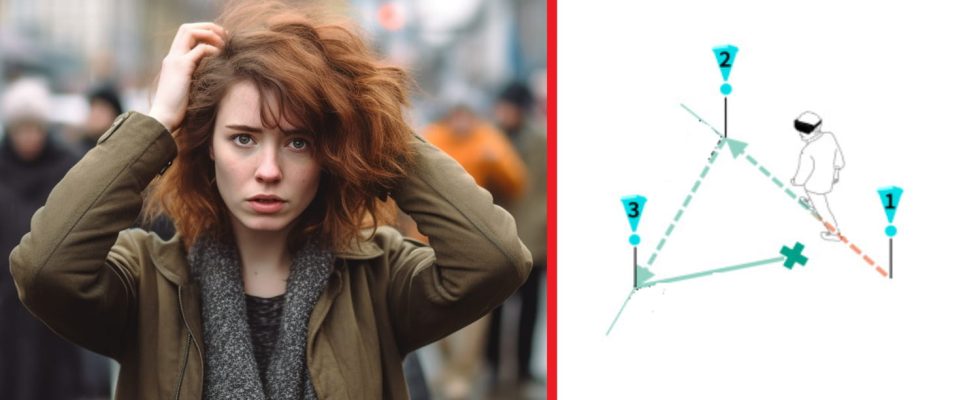A study published in the journal Current Biology shows that people with Alzheimer’s disease can have difficulty finding their way in space very early on.
There Alzheimer’s disease is a neurodegenerative pathology who would touch between 800,000 and a million people In France. Doctors say: the earlier it is detected, the more effective the treatments to slow its progression can be. An English study published in early October 2023 in the journal Current Biology highlights a symptom probably ignored as possible warning sign of the onset of Alzheimer’s. The authors selected 31 healthy young people36 the elderly healthy and 43 patients with mild cognitive impairment (called “MCI” in the study). Patients with mild cognitive impairment were divided into three subgroups based on the presence or absence of Alzheimer’s disease biomarkers in their cerebrospinal fluid: a group with a positive biomarker (MCI+), a group with a negative biomarker (MCI-) and a group whose biomarker status was unknown.
With the help of virtual reality glassesthey asked each participant to follow a precise triangle-shaped trajectory. On the way out, they were guided by cones numbered. On the way back, they guided themselves, without landmarks environmental. Statistical analyzes were carried out to compare performances between groups and the trajectories carried out.
Ultimately, the researchers found that the participants with a positive biomarker for Alzheimer’s disease had difficulty finding one’s way in space. For them, the integration of the path to be taken was impaired, they were less able to determine their position and the direction to take to return to their starting point.
Difficulties accentuated at the level of turns
Their trajectories were particularly imprecise at the angles of the route. Concretely, they tended to overestimate turns when turning around to change direction. These difficulties were not not produced in healthy elderly participants and presenting mild cognitive impairment, which convinced the researchers that the problem was specific to Alzheimer’s disease. “Our results open a new way for early diagnosis of Alzheimer’s disease by focusing on specific navigation errors”, commented Andrea Castegnaro, first deputy author of the study and researcher at the Institute of Cognitive Neuroscience at UCL London. Before specifying that “the conclusions drawn should be treated with caution until further validation by a larger study.”
